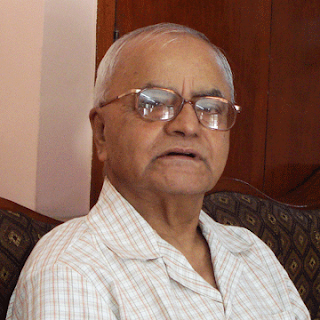Columns
Health of the republic
Despite many governmental instabilities at the centre and the provinces, the republic's future is secure.
Lok Raj Baral
Some people blame republicanism for all the ailments arising from bad governance. Such a school of thought gains ground when the enablers of monarchical authoritarianism and quasi-democrats make it a common agenda. They maintain that the Republic of Nepal has failed to steer the course of politics that is supposed to deliver and reduce the crises of governance caused by self-seeking, corrupt politicians. Such a state of affairs is rampant due to policies and linkages between the the politicians and unscrupulous money dealers called bichaulia. It has been a general perception that most politicians thrive on such dealings.
Facing the wrath
It is unfair to hold the republic accountable for all problems of Nepali society and polity. The republic and the governance crises cannot be mixed despite some structural relationship between them. Elites’ political culture and efficacy matter in conducting the affairs of the state. The republican constitution has all the characteristics of a democratic system, but the implementation is weak in addressing the everyday problems of the people. The gap between limited political elites and the disadvantaged segments of society—the Dalits and other people at the bottom—persists. Casteism continues to determine social status, to which parties that swear by egalitarianism pay no serious attention. High-flowing ideas of demagogues and the general people’s blind faith in them give rise to internal threats to democracy.
Demagoguery is increasingly becoming a universal phenomenon in politics, and Nepali politicians are no exception. They think that electoral prospects are best enhanced by deceiving the people with populist slogans. Thus, internal threats propped up by politicians who cannot see beyond self-aggrandisement seem to threaten the system. The regular making and breaking of central and provincial governments spread mass dissatisfaction and frustration, and the government’s failures to regulate effectively are taken as outrageous activities carried out by political parties’ leaders.
Yet, the republic has become a “fait accompli”, with people gradually showing their understanding of its spirit as the highest form of democracy. Ironically, the party leaders who incur public wrath have also failed to defend the republic when necessary. They stand united when the anti-republican elements try to raise their heads to malign it.
Enabling factors
Among the supporting factors for maintaining the health of the republic is the commitment of a large section of the people and political forces. Regular elections and the culture of acceptance of defeat and victory have enabled the system to grow, contrary to many negative aspects evident in its regulation. These are human flaws that can be corrected through active public scrutiny and vigilance. Local institutions are in good shape and seem to work for political mobilisation and development. Political integration on the agenda of the achievements of revolution is a singular factor for providing guardrails to democracy. The uproar against the government’s failures should not be taken as an assault on the republic. The vibrant media has tried to reign in the “elected autocrats” from taking any reckless action against the spirit of the constitution. Judicial decisions against political adventurism have invariably favoured the constitutional spirit. Yet, institutions created by the constitution are not flawless, so some decisions taken by the Supreme Court, sometimes, show the “veneer of democracy while eviscerating its substance”.
The seed of republican spirit was sown by King Mahendra when he dismantled the edifice of the parliamentary system and imposed authoritarian monarchical rule in 1960. It was the culmination of the royal absolutism he had initiated since he ascended the throne in 1954. The 1990 Movement invalidated his action, despite the post-1990 political parties’ negative role in the consolidation of multi-party democracy. Such inter-party and intra-elite conflicts once again helped nurture the monarchical ambition to be fully absolute, as displayed by King Gyanendra’s impatient moves to embark on absolutism. Such unbridled ambition and penchant for royal rule, reminiscent of his father’s action, however, turned out to be counter-productive with several major parties, notably the Nepali Congress and the CPN-UML, going against his move. The royalist Rashtriya Prajatantra Party (RPP), which was already torn apart by internal conflict, didn’t oppose Parliament’s decision to declare Nepal a republic.
Eventually, the Maoists, already in an armed insurrection since 1996, decided to forge a broad coalition with the parliamentary parties, then marginalised and humiliated by the King, to prepare for a final assault on royal autocracy and on establishing full democracy. That paid off when the king surrendered to the people’s movement and relinquished his throne.
Future of the republic
Coming back to the question of the endurance of the republic, it can be stated that despite a high degree of governmental instabilities both at the centre and in provinces, the republic’s future is secure. People may punish the politicians for failing to give effective governance with stability, but the political system does not seem to be facing a major crisis. The flaws experienced during the implementation of the present constitution have to be corrected soon. The ultimate motto of such corrections should be the government’s stability and progress. For some time, a national government of major political forces should try to set a common agenda for providing social, economic and political justice to those still marginalised and deprived. It is not only representation but empowerment of these sections should be ensured. That is the way to reduce disparity and promote participatory democracy.
It’s also imperative that the minimum rule of the political game is maintained. How the parties conduct their politics both at the centre and in the provinces is likely to inflict a deadly blow to the functioning of democracy. The worst examples of such political horse-trading can be seen in the instability caused by the short-sighted approach to political management. Now, the time has come to stop such ugly activities of political parties to allow democracy to function.




 20.53°C Kathmandu
20.53°C Kathmandu















